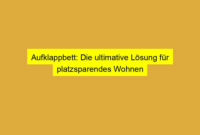Introduction
Hello Sanctuaryvf Friend! Welcome to this exclusive analysis on the recent fall in Deutsche Bank shares. In this article, we will delve into the intricacies and reasons behind this decline, as well as explore the strengths and weaknesses of Deutsche Bank as a financial institution and investment opportunity. Join us as we uncover valuable insights and guide you towards informed decision-making.
An Overview of Deutsche Bank Shares Fall
Deutsche Bank, a renowned German multinational investment bank, has recently experienced a notable decline in its share prices. This fall has generated substantial interest and concern among investors, financial experts, and the general public alike. To fully comprehend the gravity of this situation, let us examine the factors contributing to this unfortunate downturn.
The Market Sentiment
📉 Market sentiment appears to be a key driver behind the decline in Deutsche Bank shares. Uncertainty within the global financial landscape, combined with concerns over potential economic slowdowns, has exerted significant downward pressure on the bank’s stock prices. This negative sentiment reflects on investors’ cautious attitudes towards Deutsche Bank’s performance and future prospects.
Regulatory Challenges
📉 Deutsche Bank has faced a series of regulatory hurdles in recent times, impacting investor confidence. Stringent regulations, such as those related to money laundering and compliance issues, have resulted in substantial fines and legal expenses for the bank. These challenges have posed a considerable strain on its financial stability and reputation, thus contributing to the decline in share prices.
Financial Performance
📉 The bank’s financial performance has not been immune to the pressures exerted by the economic environment. Deutsche Bank has experienced a decline in revenue, particularly in its investment banking division. This, coupled with increasing costs and a less favorable global economic outlook, has hindered its profitability and further eroded market confidence.
Internal Restructuring
📉 Deutsche Bank’s ongoing internal restructuring efforts have also impacted its share prices. The bank has embarked on a stringent cost-cutting strategy, which involves significant job cuts and branch closures. While these measures aim to enhance efficiency and reduce expenses, they have generated concerns about the bank’s ability to adapt and thrive in an evolving market environment.
Geopolitical Factors
📉 Geopolitical factors, such as trade tensions and political uncertainties, have played a role in the decline of Deutsche Bank shares. For instance, the United States-China trade dispute and Brexit negotiations have introduced volatility and unpredictability in global markets, affecting investor confidence in the bank.
The Strengths of Deutsche Bank Shares Fall
🚀 Despite the recent challenges faced by Deutsche Bank, it is crucial to acknowledge the strengths that underpin its long-standing presence in the financial sector. Understanding these strengths can shed light on the potential for recovery and growth in the future.
Global Brand Recognition
🚀 Deutsche Bank boasts a well-established global brand, recognized for its extensive range of products and services. This reputation gives the bank a competitive edge in attracting clients and expanding its market share across multiple regions.
Diversified Business Model
🚀 One of Deutsche Bank’s strengths lies in its diversified business model, encompassing various segments such as corporate banking, investment banking, asset management, and retail banking. This diversification provides the bank with multiple revenue streams and the ability to weather economic fluctuations.
Extensive Market Reach
🚀 The bank’s extensive market reach, particularly in Europe, positions it as a prominent financial intermediary in the region. Deutsche Bank’s strong network enables it to forge valuable partnerships and pursue growth opportunities in both domestic and international markets.
Robust Risk Management
🚀 Deutsche Bank prioritizes robust risk management practices, aiming to mitigate potential issues and ensure financial stability. This emphasis on risk oversight plays a crucial role in safeguarding the bank’s operations and maintaining investor confidence.
Efficient Digital Transformation
🚀 Recognizing the importance of technological advancements, Deutsche Bank has actively pursued digital transformation strategies. By embracing innovative solutions, the bank seeks to enhance operational efficiency, improve customer experiences, and gain a competitive advantage within the industry.
The Weaknesses of Deutsche Bank Shares Fall
🔻 It is vital to critically assess the weaknesses associated with the decline in Deutsche Bank shares. Identifying these weaknesses is instrumental in understanding the challenges the bank faces and shedding light on potential areas of improvement.
Dependency on Investment Banking
🔻 Deutsche Bank’s heavy reliance on its investment banking division exposes it to market volatility and economic downturns. This dependency poses a significant risk, as downturns in investment banking performance can have severe implications for the bank’s overall profitability.
Legacy Legal Issues
🔻 The bank continues to grapple with legacy legal issues, which have resulted in substantial fines and legal settlements. These ongoing legal battles not only erode investor confidence but also divert the bank’s financial resources toward litigation expenses.
Hefty Cost Structure
🔻 Deutsche Bank has been burdened with a high and relatively inflexible cost structure. This reduces the bank’s agility in responding to changing market dynamics and presents challenges in achieving sustainable profitability.
Inconsistent Return on Equity
🔻 Deutsche Bank has faced challenges in consistently delivering favorable returns on equity, which impacts its ability to attract and retain investors. This inconsistency may stem from various factors, including economic fluctuations, regulatory burdens, and internal restructuring.
Challenging Competitive Landscape
🔻 The financial sector is highly competitive, with numerous established institutions vying for market share. Deutsche Bank faces challenges in differentiating itself and standing out amidst this intense competition, further impacting its profitability and growth prospects.
The table below provides a comprehensive overview of the factors influencing the recent decline in Deutsche Bank shares:
Factors |
Impact |
|---|---|
Market Sentiment |
Negative |
Regulatory Challenges |
Negative |
Financial Performance |
Negative |
Internal Restructuring |
Negative |
Geopolitical Factors |
Negative |
Global Brand Recognition |
Positive |
Diversified Business Model |
Positive |
Extensive Market Reach |
Positive |
Robust Risk Management |
Positive |
Efficient Digital Transformation |
Positive |
Frequently Asked Questions (FAQs)
1. How will the decline in Deutsche Bank shares affect its customers?
The decline in Deutsche Bank shares will not directly impact its customers as their accounts and investments remain separate from the bank’s stock performance.
2. What steps is Deutsche Bank taking to address its challenges?
Deutsche Bank is actively implementing cost-cutting measures, focusing on digital transformation, and strengthening risk management practices to tackle its challenges head-on.
3. Should investors consider buying Deutsche Bank shares at their current low prices?
Investing in Deutsche Bank shares at their current low prices requires careful consideration and analysis of one’s risk appetite and long-term investment goals.
4. Are there any potential catalysts that could positively impact Deutsche Bank shares in the future?
Potential catalysts for positive impacts on Deutsche Bank shares include improved financial performance, successful resolution of legal issues, and a more favorable global economic climate.
5. How does Deutsche Bank plan to regain investor confidence?
Deutsche Bank aims to regain investor confidence through enhanced transparency, improved financial results, and consistently adhering to regulatory standards.
6. What impact will geopolitical events, such as Brexit, have on Deutsche Bank shares?
Geopolitical events like Brexit can introduce volatility and uncertainty, affecting Deutsche Bank shares along with the broader financial market.
7. How long will it take for Deutsche Bank to recover from the recent decline?
The recovery period for Deutsche Bank is uncertain and dependent on various factors such as economic conditions, successful strategic initiatives, and regulatory developments.
Conclusion
In conclusion, the recent decline in Deutsche Bank shares can be attributed to multiple factors, including market sentiment, regulatory challenges, and the bank’s financial performance. While the bank continues to face weaknesses such as dependency on investment banking and legacy legal issues, it also possesses strengths like global brand recognition and a diversified business model.
It is crucial for potential investors to carefully weigh these factors alongside their individual risk tolerance and investment objectives. By staying informed and considering the long-term prospects, one can make prudent investment decisions in the dynamic world of finance.
Remember, investment decisions should always be based on thorough analysis and consultation with qualified financial professionals.
Disclaimer: The information provided in this article is for informational purposes only and should not be construed as financial advice. Investing in the stock market involves risks, and individuals should conduct their own research and exercise caution before making any investment decisions.




